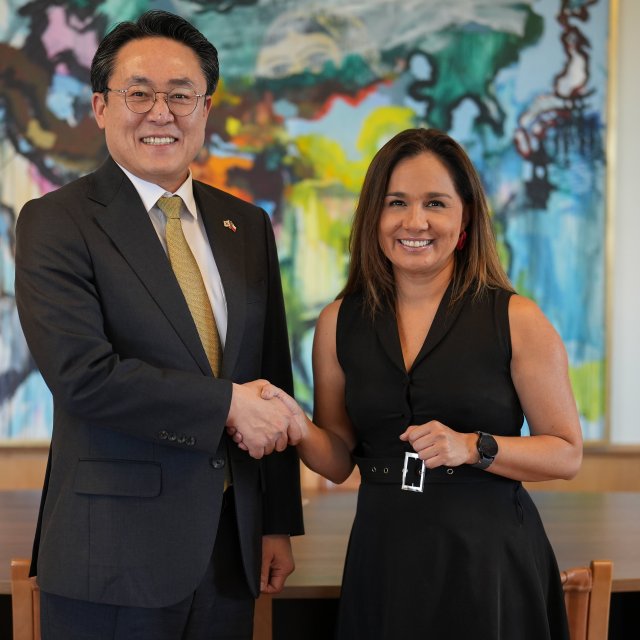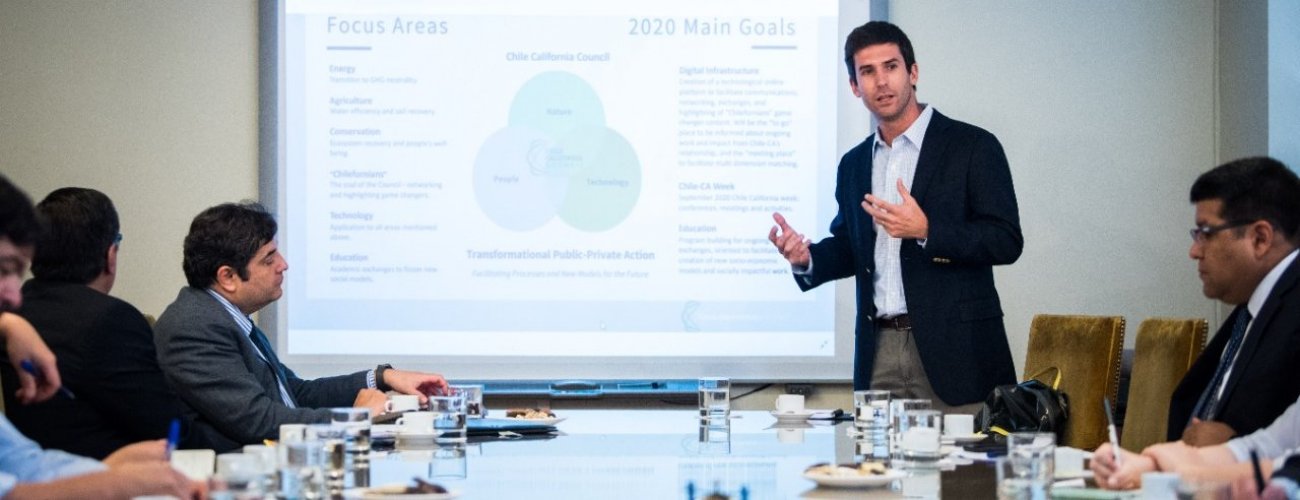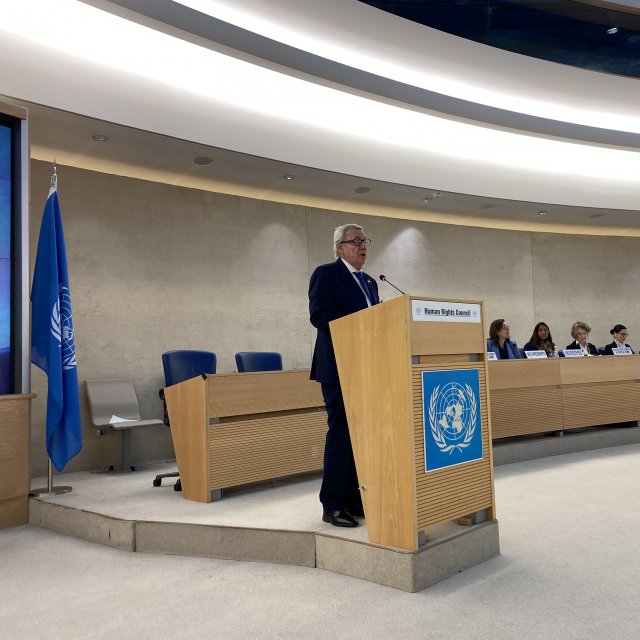 Thursday, February 27th 2025
Undersecretary meets with the Minister of Oceans and Fisheries of the Republic of Korea
Thursday, February 27th 2025
Undersecretary meets with the Minister of Oceans and Fisheries of the Republic of Korea
Presentation on the Western Pacific Coastal Zone, between Chile and the State of California, in the framework of COP25

The presentation "Connecting the Western Pacific Coastal Zone between Chile and California", by Matías Alcalde, representative before the Chile-California Council, was held this Friday at the Ministry of Foreign Affairs.
The activity was attended by representatives of the Ministry of Science, Technology, Knowledge and Innovation, Ministry of the Environment, CONICYT, CORFO, Universidad Católica, UC DAVIS Innovation Center and the Ministry of Foreign Affairs.
At the beginning of the activity, the Director of Energy, Science, Technology and Innovation of the Ministry of Foreign Affairs, Jorge Iglesias, highlighted the work carried out by Alcalde and by the Chile-California Council, within the framework of the Chile-California Plan - established through a Memorandum of Understanding in 2008 - whose main objective is to develop business opportunities, expand training and research in education and human capital, and in particular, carry out research and cooperation projects in the areas of environmental protection, energy, agriculture and technology, among others.
On his part, Alcalde talked about his recent participation in COP 25, highlighting the mission of the Chile-California Council in light of the impact that climate change has in the coastal area of our country. This mission seeks to facilitate transformation processes that promote concrete and collaborative actions, taking advantage of the opportunities that exist between Chile and California for the exchange of good practices and successful experiences in public policies for the development of sustainable management and development models.
In this sense, he highlighted the model of the State of California for its coastal zone, and in particular the Marine Life Protected Act (MLPA). This is, he said, "a public-private social process that has been developed over nearly six years and culminates in the creation of a network of marine protected areas along the California coast. In this regard, he concluded that Chile has a great opportunity to build public policies, with solid bases that favor resilient designs and social impact on local communities, for the changes that are being observed.
Related articles
 Thursday, February 27th 2025
Undersecretary meets with the Minister of Oceans and Fisheries of the Republic of Korea
Thursday, February 27th 2025
Undersecretary meets with the Minister of Oceans and Fisheries of the Republic of Korea
 Monday, February 24th 2025
Minister van Klaveren reaffirms Chile's commitment to human rights and gender equality
Monday, February 24th 2025
Minister van Klaveren reaffirms Chile's commitment to human rights and gender equality









